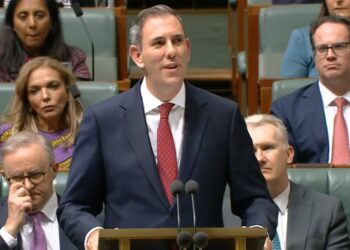Researcher and speaker Dr Katherine Hunt has posed a “provocative” question on her LinkedIn page, probing the legitimacy of the Code of Ethics.
“If the Code of Ethics is so cool, then why are all financial planners with all clients breaching standard four and five?”
“Bit provocative, but it’s kind of true,” she wrote.
Standard four of the Code of Ethics says: “You may act for a client only with the client’s free, prior and informed consent. If required in the case of an existing client, the consent should be obtained as soon as practicable after this Code commences.”
Standard five says: “All advice and financial product recommendations that you give to a client must be in the best interests of the client and appropriate to the client’s individual circumstances.
“You must be satisfied that the client understands your advice, and the benefits, costs and risks of the financial products that you recommend, and you must have reasonable grounds to be satisfied.”
Dr Hunt noted that while these standards don’t look “so hard”, there are two key reasons as to why they are.
Reason one, she noted, is that “it’s impossible to understand complex holistic financial advice as a lay client”.
“Professional financial planners by default know things and do things clients don’t and can’t. If clients could and wanted to, they wouldn’t see a financial planner.
“Logic 101.”
Reason two, she explained, is that “it’s impossible to consent to something you don’t understand”.
“The medical professional even struggles with this. Real informed consent requires understanding. Same for financial planners and for doctors,” Dr Hunt added.
According to Dr Hunt, “with so much chitter-chatter about the ethics of financial planners”, it would seem that “some structural issues” are present.
“The structural issues have nothing to do with the actual ethical behaviour of financial planners.”
“What am I missing?”
Responding to her post, Ben Walsh, the head of research at Padua Solutions, suggested “for clarity”, “you need best practice to be defined by professional standards”.
“Australian consumer law lends itself for ‘market practice’, which would fail in financial planning.
“Best practice would ensure all reasonable efforts are made and documented,” Mr Walsh said.
“If best practice, as defined by the profession, is spelled out, then innovative technology can help ensure the problem is solved at scale,” he added.
Mr Walsh also shared that “quantitative models” are being developed for capturing the psychological aspects of the client’s picture.
“Initial research is quite promising, as is the aspect of including religion in that picture.”
Late last year, the then chief executive officer of the Association of Financial Advisers (AFA) Phil Anderson said he wants to see the Code of Ethics fixed in 2023.
To mark four years since the Financial Planners and Advisers Code of Ethics was first instated, Mr Anderson at the time voiced the grievances shared by many advisers in a lengthy article posted on LinkedIn.
“It would have been ideal if the entire profession had been able to get behind the code back in 2019 and fully support it. That would have been a really important outcome and given us all a level of focus and direction for the future. That, unfortunately, was not the outcome and it remains the case today,” Mr Anderson wrote.
Much of the dissatisfaction with the Code, he said, has been directed at the “idealistic”, but “completely impractical” requirement in standard three that, “You must not advise, refer or act in any other manner where you have a conflict of interest or duty”.
“We all know that it is impossible to remove all conflicts of interest,” Mr Anderson said.
That, he explained, “would stop a surgeon from recommending an operation and also doing the operation”.
“We also know in financial advice that charging an hourly rate or even a flat fee does not remove all conflicts,” he said.
Ultimately, Mr Anderson stated that a “supported and agreed code is important”.
“I fully appreciate that being recognised as a profession bestows certain privileges and obligations on financial advisers, and acting in the interests of clients and considering the interests of the community as a whole are very much central to that,” he said.
“It is important that the Code of Ethics is fixed and that we can all get behind it and encourage a strong emphasis on the behavioural outcomes that it demands. I am sure we would all like to see the Code of Ethics Version 2 designed and delivered in 2023.”




As Sir Joh Bjelke-Petersen said, “If there is no conflict, then there is no interest”
You mean the FASEA exam + Ethics subject was a lip-service response by regulators? After all this belly-aching about having to pass the exam and having to attend exam preparation classes and produce evidence and attend online courses in ethics. Ever wonder why we are so fed up?
“We also know in financial advice that charging an hourly rate or even a flat fee does not remove all conflicts,” he said.
Of course it doesn’t, but taking commissions for the life of teh insurance policy and not telling clients this is going to make premiums 30% more expensive every year is clearly more conflicted than a flat fee.
Phil, these are the kinds of arguments that make teh industry need a convoluted code of ethics.
Even with ongoing commissions DISCLOSED IN SOA, it’s sometimes not worth the effort of (a) sourcing client (b) determining insurance needs (c) researching options (d) preparing & presenting SOA (e) lodging application (f) navigating underwriting (g) conducting annual insurance reviews. Best not to conclusion-jump, based on your own standards.
To be fair – the code (or parts of it) were ALWAYS unworkable. Go figure.
The Code of Ethics via FASEA was hijacked by the ideological makeup of the FASEA Board and left wing academics who were pushing the CHOICE wheelbarrow but under the guise of independent reports and research papers paid for by ASIC !! ( yes…. the regulator paying for ” independent ” opinion full well knowing that CHOICE had already provided a consumer focused submission to FASEA regarding the Code of Ethics.
ASIC in constant email contact with FASEA trying to direct traffic, but requesting their emails are not to be considered as preference or opinion in relation to the Code of Ethics.
Any wonder how the mess that is the Code of Ethics came into being.
it was destined from the start to be an unworkable structure because it was designed by those whose ideological agendas do not match with the reality of working with clients on a daily, weekly and yearly basis.
Has ASIC made public it’s gift register for 2018?
I personally don’t take any notice of, or think about, the code of ethics day to day. I advise clients with the best recommendations I can give to improve their financial position. It’s ridiculous to think that every time you give advice you’d first refer back to a code, drafted by academics, using legalistic language, that’s largely irrelevant to Advisers and their clients. You’re either ethically minded or you’re not. The issues the code is supposed to have addressed have largely disappeared due to the banks getting out of financial advice – they were structural issues where even ethically minded Advisers were driven to provide bad advice due to their employment arrangement. Throw the code in the bin and stop worrying about it.
Is this “news” just rehashing a linkedin post and “quoting” comments from said post. Really?
Unfortunately with contributors to FARSEA Code like ASIC paying Academics to make the Code so stupid it is not practical in the real world.
If applied in full, every piece of Advice or client interaction would fail some part of FARSEA Code.
Does ASIC’s “Paid for Comments” FARSEA papers fail the code = of course.
Do the Academics receiving conflicted ASIC “Money for Comments” fail the code = of course.
[b]FARSEA should be re-written by Real Advisers for real world application. [/b]
Perhaps a Royal Commission into all ASIC behind the scenes operations is required? What conflicts do ASIC staff have?
Academic non practising boffin pontificate over academics blight on the profession. Wake me when we are not a joke compared to other countries…
Correct me if I am wrong but was there not some talk ASIC was consulting with FASEA when the code was being developed – but didn’t want it known? If true, seems ASIC has a lot it doesn’t want know?
Code of ethics and RC outcomes for advisers have been so lauded by institutions that they don’t want these client best interests standards to apply to their members and new QAR salesforce.
I disagree that clients cannot know everything that we do. Part of our job is to educate clients sufficiently that they understand what is going on. A specialist will go into great detail if an important and necessary procedure is required on their patient. That detail does not need to include a crash course on biochemistry, but it should include the likelihoods of given outcomes based on evidence. That is the same with financial planning.
I feel sorry George for any client of yours that has to listen to all the wonderful and technical detail you must know and feel you must part on them. You have wasted countless hours they will never get back.
George maybe you lack [i]“Logic 101.”[/i]
Dr Hunt is 100% correct.
[i]“Professional financial planners by default know things and do things clients don’t and can’t. If clients could and wanted to, they wouldn’t see a financial planner.[/i]
No George. I had lots of surgeries unfortunately. In all cases the anaethitist would spend about 30 seconds saying the main risk is you may have an adverse reaction from the drugs and die. I’ve done this lots of times and haven’t lost a patient yet. Please sign this form that says if you’re my first death your family won’t be able to sue me.